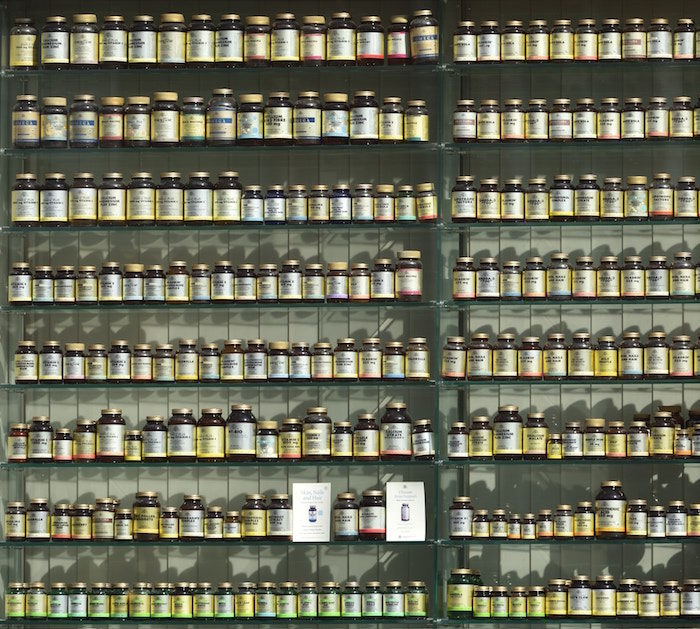 Who else has ever felt frustrated or confused about what vegan supplements you should be taking? Having an abundance of energy, a sense of clarity…isn’t that what we all strive for? It’s possible to be more sustainable, to help save our planet, while setting yourself for a healthy, long life. Sustainability and supplements can coexist.
Who else has ever felt frustrated or confused about what vegan supplements you should be taking? Having an abundance of energy, a sense of clarity…isn’t that what we all strive for? It’s possible to be more sustainable, to help save our planet, while setting yourself for a healthy, long life. Sustainability and supplements can coexist.
So let’s talk about vegan supplements from a sustainability point of view.
Truth be told, the only supplement that is vital for our health that we cannot obtain naturally from food sources as a vegan is vitamin B12. However, there are other supplements that are recommended in our diet when living a vegan lifestyle, and those are EPA/DHA (omega 3’s) and vitamin D3. In my personal experience, taking these supplements have had an increasing effect on my energy levels day-to-day.
Vitamin B12
There is a lot of confusion as to where this vitamin actually comes from and whether or not we can obtain it sustainably from our environment (through non-animal sources). Vitamin B12 is essential for brain health, the production of red blood cells, as well as proper functioning of our nervous system. Without it, we may begin to feel weak, tired, dizzy, develop nerve problems, and loss of vision.
Although vitamin B12 is naturally found in animal foods, it is entirely possibly to acquire B12 without consuming animal sources. This is because vitamin B12 comes from micro-organisms—in other words, bacteria. This bacteria is produced in the digestive system of most animals, so therefore, this is how most people naturally obtain the required amount of B12. That being said, we have the ability to obtain this vitamin from non-animal sources and in a sustainable way.
So where is our vegan B12 supplements coming from? Bacterial fermentation in laboratories. These bacterias are either made synthetically, or extracted in nature through plant and soil sources and further fermented in large scale.
Because it’s more cost effective, what you’ll find more often than not in your B12 supplements is cyanocobalamin, which is the synthetic form of B12. There are other beneficial co-enzymes for our body, such as methylcobalamin and adenosylcobalamin, supplements containing these are usually a bit more expensive. Studies do suggest they are absorbed better by our bodies, but cyanocobalamin is just as nutrient sufficient, and is converted into these other two enzymes once inside the body.
Vitamin D3
Otherwise known as the sunshine vitamin… But what if we’re not getting adequate amounts of sunshine? Vitamin D3 is essential for our bone health, immune system, brain, and nervous system. Vegans and plant-based individuals are also at a much higher risk of deficiency due to the vitamin being found highest in animal sources. We can obtain the vitamin from plant-based milks, mushrooms and tofu, but usually not in adequate enough amounts. All the more reason we should supplement as vegans.
Most vitamin D3 supplements we see on the shelves are coming from sheep’s wool. So where are these vegan vitamin D3 sources coming from in our supplements? The answer is Lichen. Lichen is a symbiosis of two different organisms, algae and fungus. They are abundantly found in nature on bark, leaves, mosses, and soil. Cholecalciferol is extracted from lichens, which happens to be the most bioactive and contaminant-free form of vitamin D3. Companies are taking further precautions to source sustainably and grow responsibly, because lichens grow at incredibly slow rates.
A few things to keep in mind when searching for a vegan vitamin D3 supplements,
- Organic and free from pesticides
- Quality and purity
- Sustainable practices
This just takes doing a little background check on the company of your choosing—usually this information is easily found on the website. If not, I’ve found it really easy to just send customer service an e-mail with whatever questions I have and they are usually always very responsive and happy to share information.
EPA & DHA
These are two of the omega 3s that are essential to our health. The third is ALA, but we can obtain that much easier through our diet, so I won’t talk about ALA. I’m sure we’ve all heard numerous times about how important it is for us to get our omega 3s. They are essential for optimal brain function, vision, cardiovascular and heart health, and can also support in muscle recovery after exercising.
Most individuals are inadvertently getting adequate amounts of omega 3’s from their consumption of seafood.
If we’re not getting our omega 3’s from eating seafood, it’s usually through taking fish oil capsules. Yet, most individuals I’ve come across don’t even know as to why they’re taking fish oil. This is the result of being so bombarded with recommendations and marketing.
Well, where do you think fish get their omega 3’s? ALGAE. So why not go right to the original source? Besides, fish oil carries a huge environmental impact. We should all be aware by now that we are depleting our oceans at astronomical rates, not to mention the fact that discarded fishing nets are by far the biggest source of marine plastic pollution. Even the Great Pacific Garbage Patch is mostly made of fishing gear. Lucky for us, algae is an abundant, sustainable, vegan source of EPA and DHA.
In fact, algae is one of the most abundant organisms on our planet and is easily grown and cultivated on large scales. They make energy from sunlight, and contain 4 key components:
- Chlorophyll, known for its oxygen carrying capacity which helps restore and replenish red blood cells while its enzymes help cleanse the blood
- Omega 3 fatty acid complex
- Antioxidants
- Marine minerals
Algal oil (derived from algae) is a nutrient-dense, bioavailable, sufficient source of EPA and DHA. A 2008 study showed that algal oil gives as much DHA benefits as salmon—of course, without environmental pollutants and ethical issues posed by eating fish. Algal oil is just as bioavailable as fish oil, but far more environmentally friendly. Just look out for where your algae is coming from when purchasing your Omega 3’s-making sure they are sourcing sustainably.
When maintaining a healthy and balanced lifestyle, sometimes supplements are required. Whatever our diet and or lifestyle choice may be, we should all take extra precautions in sourcing out things sustainably where we can. Whether or not you’re vegan, there are an abundance of supplements that don’t have to come from animal sources, and can be sourced in a sustainable way. It’s up to us to know how to navigate through this, make informed decisions, and provide our bodies with the highest grade options.
Which vegan supplements do you currently take?
Related: Do You Need Vegan Collagen Supplements For Healthy Skin? Plus, Some Options
5 Energy-Boosting Vegan Supplements That Make You Feel Like Your Best Self, Every Day
Get more like this—Subscribe to our daily inspirational newsletter for exclusive content!
__
Photo: Angel Sinigersky on Unsplash




